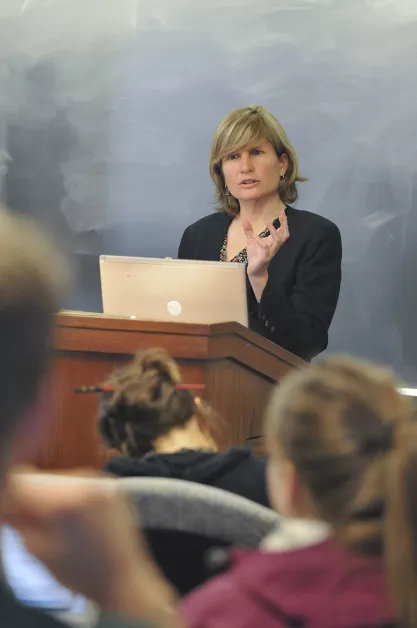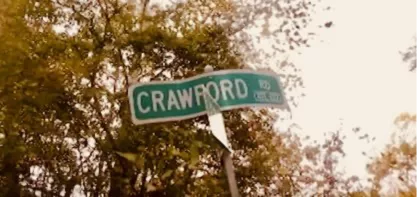Table of Contents
The mens rea issue: SCOTUS to hear ‘true threat’ case — First Amendment News 363

Erik Cox Photography / Shutterstock.com
Supreme Court chamber.
Decades after the “true threats” exception to the First Amendment was announced in Watts v. United States (1969) the Court returned to the matter in Virginia v. Black (2003). In that case and thereafter, the question of the “true threat” exception and the state of mind required to establish it have been subject to considerable debate among the Justices.
The mens rea matter was before the Court in Elonis v. United States (2015). The Elonis majority opinion, authored by Chief Justice Roberts, did not rule on the First Amendment issue. It ruled only that mens rea was required to prove the commission of a crime under 18 U.S.C. § 875(c). Five years later in Kansas v. Boettger the mens rea question still plagued judges. The issue facing the Boettger Court was whether the First Amendment prohibits a state from criminalizing threats to commit violence communicated in reckless disregard of the risk of placing another in fear. Nothing, however, came of that since cert. was denied.
Now comes Counterman v. Colorado, which the Court has just agreed to review. The issue raised in the case is whether, to establish that a statement is a “true threat” unprotected by the First Amendment, the government must show that the speaker subjectively knew or intended the threatening nature of the statement, or whether it is enough to show that an objective “reasonable person” would regard the statement as a threat of violence. The petitioner, Billy Raymond Counterman, was convicted for stalking a local female musician. Counterman sent the woman Facebook messages in which he insinuated that he had seen her driving. His comments, which left the woman “extremely scared,” included such language as “Die” and “Fuck off permanently.”
The Colorado Court of Appeals upheld Counterman’s conviction. In doing so, it held that Counterman’s Facebook messages constituted a “true threat” if in applying an objective test a reasonable person would regard them as a threat of violence.
Confusion in lower courts?
In his cert. petition, John P. Elwood (counsel for the petitioner in Elonis) argues:

The Court “granted review in [Elonis] to resolve [that] disagreement among the Circuits,” 575 U.S. at 743 (Alito, J., concurring in part and dissenting in part), but ultimately decided the case on narrow statutory grounds rather than constitutional ones, holding that “a guilty mind is a necessary element” of the federal threat offense and a “reasonable person” standard “is inconsistent with the conventional requirement for criminal conduct — awareness of some wrong-doing,” id. at 734, 737-738 (internal quotation marks omitted). Justice Alito lamented that the Court had “compounded — not clarified — the confusion” in the lower courts. Id. at 743 (Alito, J., concurring in part and dissenting in part). Justice Thomas similarly observed that the Court’s “failure to decide” the acknowledged circuit split “throws everyone from appellate judges to everyday Facebook users into a state of uncertainty.” Id. at 750 (Thomas, J., dissenting).
Mr. Elwood also argues that since Elonis:
[L]ower courts continue to disagree about the standard for determining what constitutes a true threat under the Constitution. The First, Second, Third, Fourth, Fifth, Sixth, Seventh, Eighth, and Eleventh Circuits, as well as Arizona, Arkansas, Colorado, Connecticut, California, Hawaii, Iowa, Louisiana, Mississippi, Montana, North Dakota, Oregon, Pennsylvania, South Dakota, Washington, and Washington D.C., apply versions of an objective standard that focuses on how reasonable people would interpret the speaker's words. By contrast, the Ninth and Tenth Circuits, as well as Kansas, Massachusetts, North Carolina, and Rhode Island, use a subjective standard, requiring proof that the speaker intended the statement as a threat. Georgia requires knowledge that the statement will be viewed as a threat, and Illinois and Pennsylvania require recklessness as to the statement's threatening nature. At least nine states are subject to conflicting state and federal standards, so that the constitutional protection given speech depends on the happenstance of the courthouse in which the case is prosecuted.
In stark contrast, the lawyers for Respondent Colorado (Helen Norton and Joseph Michaels with Olivia Probetts as Assistant Attorney General Fellow) argue that:

Petitioner overstates the circuit split by relying on cases decided before Elonis and exaggerating different standards among the states to suggest that courts are more divided than they are. The circuit split is extremely lopsided, and Colorado’s standard remains the overwhelming majority approach.
[ . . . ]
Since Elonis, no additional circuit court has concluded that subjective intent is required for a defend- ant’s speech to qualify as a true threat. (The Ninth Circuit reaffirmed its prior decision in Bagdasarian. See United States v. Bachmeier, 8 F.4th 1059, 1064 (9th Cir. 2021)). Any circuit split has neither worsened nor deepened since the Court’s decision in Elonis, when the Court did not rule on the constitutional standard for true threats. In asserting a split, Petitioner largely relies on cases decided before Elonis to suggest the alleged split is more significant than it is. Since Elonis, only four circuit courts have addressed how a court should determine whether an individual has made a true threat, and only one applied a subjective test—but, again, that circuit was one of the two circuits that already applied a subjective test pre-Elonis . . . The other circuits to have considered the question since Elonis have maintained their pre-Elonis objective test.
Related
- Rodney Smolla (now dean of Vermont Law School) was counsel for the respondents in Virginia v. Black.
Cert. petition: Is commercial filmmaking speech under the First Amendment?
The case is Price v. Garland. Here is some background on it: Gordon Price is a music store owner and part-time independent filmmaker; he lives and works in Yorktown, Virginia. In 2018, Price and a colleague released an independent feature film about a York County stretch of road that has long been the subject of rumors of hauntings and the location of unsolved murders.
The film is entitled “Crawford Road.” It premiered at the Boathouse Live Restaurant in Newport News, Virginia. About 250 people attended the premiere, which received press coverage. Later, it was presented at other venues in Hampton and Yorktown, Virginia. The film also received some local TV news attention.

Enter the police (from the motion to dismiss):
In December 2018, two officers of the U.S. Park Service came to Price’s music store and issued a citation for failure to obtain a commercial filming permit pursuant to 36 C.F.R. § 5.5(a). Price asked the officers why his film was treated differently from numerous videos of paranormal activity from the same locations that appear on YouTube or the news interview he gave that appeared on WTKR, and was told the other activities were covered by the First Amendment, and the distinction turned on the commercial nature of his film.
Cert. petition
In his cert. petition on behalf of an independent filmmaker, Robert Corn-Revere argues that:
The Petitioner and appellee below, Gordon Price, is a part-time independent filmmaker who was cited for violating 54 U.S.C. § 100905 for failure to obtain a commercial filming permit for shooting portions of a feature film in areas open to the general public in or around four locations within the Yorktown Battlefield in the Colonial National Historical Park. After charges were dismissed, he brought an action challenging the law’s constitutionality, giving rise to the proceedings below.
[ . . . ]
The [district] court held the law is a content-based prior restraint, that it fails strict scrutiny, and that it imposes a tax on speech. A divided panel of the D.C. Circuit reversed, holding that filming is ‘merely a noncommunicative step in the production of speech.” Judge Tatel dissented, describing the majority’s reasoning as “untethered from our court’s precedent and that of our sister circuits.”
The three issues raised in it are:
- Whether filmmaking is a “communicative activity” protected by the First Amendment or merely “a noncommunicative step in the production of speech” subject to a diminished level of constitutional scrutiny?
- Whether First Amendment protections in public forums can be diluted by disaggregating the constituent parts of expressive activities and applying diminished constitutional scrutiny to information gathering? And
- Whether requiring commercial filmmakers to obtain a permit and pay a fee to film on public lands without regard to their impact on public property violates the First Amendment?
Related
- “Case in Progress — The Man Who Was Criminally Cited for Filming in a Federal Park,” First Amendment News 224 (Sept. 18, 2019)
Headline: ‘Appeals court seems poised to void part of sex trafficking law’
This from a recent news story filed by Josh Gerstein over at Politico:
A federal appeals court panel appears likely to strike down part of a law Congress overwhelmingly passed in 2018 to crack down on online advertising websites such as Backpage that were viewed as facilitating prostitution. [Fight Online Sex Trafficking Act and Stop Enabling Sex Traffickers Act]
During arguments on Wednesday in a lawsuit brought by advocates for legalizing prostitution, a D.C. Circuit Court of Appeals panel expressed deep skepticism about the constitutionality of language in the anti-sex trafficking law that makes it a crime to operate a computer service with the intent to promote prostitution.
[ . . . ]
The lawsuit the court took up on Wednesday was filed by Human Rights Watch, the Internet Archive and the Woodhull Freedom Foundation, which says it advocates for “sexual freedom.” Many internet companies also opposed the law, but their lobbying efforts fell short in the wake of arguments that online sites like Backpage were facilitating prostitution, including in some cases sexual trafficking of children and teenagers.
A lawyer for the groups and individuals challenging the law, Robert Corn-Revere, emphasized on Wednesday that the statute was broad enough to cover many kinds of computer operators.
Related
- Stephen Lemons, "Woodhull’s FOSTA Challenge Lays Bare DOJ’s Lies in Lacey/Larkin Case," Front Page Confidential (Jan. 17)
Connecticut state officials seek to stop videotaping of public employees
- Sandra Diamond Fox, “They make money videotaping officials. Why and how some CT leaders want to stop them,” The Ridgefield Press (Jan. 16)
Public officials are considering ways to react legislatively to a growing group of people who consider themselves First Amendment rights activists and make money by creating YouTube videos of themselves walking into Town Halls and other public offices unannounced and taping them.
While the YouTubers say they are defending the Constitutional rights of all and performing a service that helps the community, many officials and employees say the activists' actions disrupt their workplaces. In local incidents, police have been called and sometimes officials or the YouTubers get arrested or into other legal trouble. And now, state and town leaders are considering legislative action.
State lawmakers urge use of Comstock laws to prosecute interstate abortion information providers
- Emily Bazelon, “Risking Everything to Offer Abortions Across State Lines,” The New York Times Magazine (Oct. 4)

In September [2022], abortion opponents made another move. Twenty-two Republican state lawmakers in Utah wrote a letter to N.A.F. citing two arcane federal statutes enacted in 1873. Known as the Comstock laws, they sweepingly make it a crime to use the mail or other “interstate carriers” to send any drug, “article” or “thing” that produces an abortion. The statutes (which also make it a crime to send “indecent” publications through the mail) were challenged when Margaret Sanger opened the country’s first birth-control clinic in 1916 and haven’t been enforced since the 1960s. “We will do everything in our power,” the Utah lawmakers wrote, “to ensure that the U.S. attorney in the next Republican administration holds N.A.F. and its members accountable for every criminal act they commit in violation of these federal statutes.” In response to the letter, Jones said that N.A.F. was “supporting our members in Utah.”
Mchangama on Hamline blasphemy controversy
- Eugene Volokh, “Jacob Mchangama: ‘Privileging Blasphemy Norms Over Open Inquiry Plays Into the Hands of Religious Fundamentalists,’” The Volokh Conspiracy (Jan. 15)
By internalizing religious blasphemy norms Hamline has not only repudiated academic freedom, but also played into the hands of religious fundamentalists whose main victims are the very Muslims that Hamline says it wants to protect. The furor caused Hamline’s Board of Trustees to issue a statement on January 13th in which it promises to review its policies with a view to ‘Upholding academic freedom and fostering an inclusive, respectful learning environment for our students are both required to fulfill our Mission.’ That Hamline is reviewing its policies and seeking to learn from the debacle it has brought upon itself is a welcome step in the right direction.
Related
- Nico Perrino, “‘So to Speak’ podcast transcript: The costs of offending religious sensitivities,” FIRE (Jan. 16)
- Vimal Patel, "After Lecturer Sues, Hamline University Walks Back Its ‘Islamophobic’ Comments," The New York Times (Jan. 17)
FIRE announces ‘Forum on Free Speech and Content Moderation’

- Marcus Maldonado, “FIRE announces ‘Forum on Free Speech and Content Moderation’ in partnership with the Mercatus Center,” FIRE (Jan. 17)
FIRE is excited to announce a partnership with the Mercatus Center at George Mason University to host a “Forum on Free Speech and Content Moderation” from April 13–15, 2023, in Alexandria, Virginia.
A part of Mercatus’s “Pluralist Lab” series, this three-day event will bring students from various ideological backgrounds together to reflect on the state of free speech and how the First Amendment applies in online settings. Attendees will explore major debates surrounding social media content moderation policies and will discuss what responsibility, if any, platforms have to moderate content.
Through panel discussions, large and small group sessions, and reading and writing exercises with their fellow students, along with talks by expert speakers (to be announced), students will reflect on the implications of social media for free speech.
The event is free to attend and open to current U.S. college and university students, including graduate students, of all majors. Meals will be provided throughout, and travel and lodging will be arranged and provided as needed.
To learn more about the event and apply, visit this webpage. Space is limited, so we encourage you to apply today!
More in the news
- Nicholas Debenedetto, “How Limiting the Second Amendment Can Also Threaten the First,” National Review (Jan. 18)
- Ian Millhiser, “Ron DeSantis’s war on ‘wokeness’ is a war against the First Amendment,” Vox (Jan. 17)
- Ronn Blitzer, “Dem's ‘flagrantly unconstitutional’ anti-White supremacy bill would ‘gut the First Amendment: Turley,” Fox News (Jan. 17)
- Susanna Granieri, “Police Review Board Member Ousted for ‘Abolish Police’ Sticker Sues; City of Tallahassee Seeks to Dismiss,” First Amendment Watch (Jan. 13)
- Olga R. Rodriguez, “News outlets seek access to evidence in Paul Pelosi attack,” Associated Press (Jan. 13)
- Gene Johnson, “School lawsuits over social media harm face tough legal road,” Associated Press (Jan. 11)
- Susanna Granieri, “Ninth Circuit Affirms Expulsion of California High School Student; Free Speech Protections Don’t Apply,” First Amendment Watch (Jan. 9)
2022-2023 SCOTUS term: Free expression and related cases
- 303 Creative LLC v. Elenis (argued Dec. 5)
- Jack Daniel’s Properties, Inc. v. VIP Products LLC
- United States v. Hansen
- Counterman v. Colorado
Pending petitions
- Price v. Garland
- Moore v. Texas
- Barton v. Texas
- Arkansas Times v. Waldrip
- Moody v. NetChoice, LLC
- NetChoice, LLC v. Moody
- Florida v. NetChoice
- Novak v. City of Parma
- Klein v. Oregon Bureau of Labor and Industries
State action
Qualified immunity
Immunity under Foreign Sovereign Immunities Act
- NSO Group Technologies Limited v. WhatsApp Inc. (cert. denied)
Liability Anti-Terrorism Act
- Twitter v. Taamneh (argument Feb. 22)
Section 230 immunity
- Gonzalez v. Google (argument Feb. 21)
Review denied
- My Pillow v. U.S. Dominion (news story)
- Kowall v. Benson
- Tofsrud v. Spokane Police Department
- Swanson v. Griffin County
Last FAN
This article is part of First Amendment News, an editorially independent publication edited by professor Ronald K. L. Collins and hosted by FIRE as part of our mission to educate the public about First Amendment issues. The opinions expressed are those of the article's author(s) and may not reflect the opinions of FIRE or of professor Collins.
Recent Articles
Get the latest free speech news and analysis from FIRE.

Can the government ban controversial public holiday displays?

The trouble with banning Fizz

FIRE's 2025 impact in court, on campus, and in our culture


